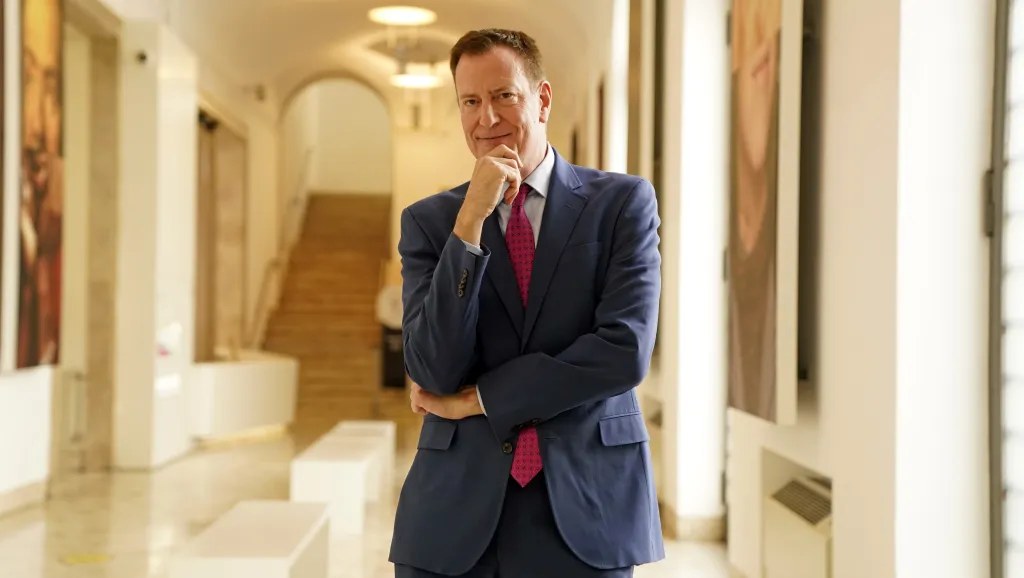Copyright Deadline

EXCLUSIVE: A senior figure at The Times of London has bemoaned the damage done to the Rupert Murdoch-owned newspaper’s reputation after a reporter was duped by a man pretending to be Bill de Blasio. Ian Brunskill, an associate editor at The Times, emailed the newsroom lamenting the “humiliating” botched interview with the former New York City mayor. The email (read in full below) was subject-lined: “Fake (Times) news/must read.” Brunskill said the de Blasio interview — and a separate hoax story involving an “AI-generated case study” about a fake royal household employee — had done “serious damage to our reputation” and “could have been avoided by good practice and due diligence.” “We should have been on our guard. We should have tried much harder to speak to the people concerned,” he wrote in the email, seen by Deadline. “There are no excuses.” Published earlier this week, The Times’ story carried quotes purporting to be from de Blasio, in which he raised concerns about Democrat Zohran Mamdani’s campaign for office. Semafor reported that The Times did track down a man named Bill De Blasio, but he was actually a Long Island wine importer. This person told Semafor he played along, responding to The Times journalist over email and using ChatGPT to compose a response criticizing Mamdani’s tax plans. “While the ambition is admirable, the cost estimates – reportedly exceeding $7bn annually – rest on optimistic assumptions about eliminating waste and raising revenue through new taxes,” the impostor said. “In my view, the math doesn’t hold up under scrutiny, and the political hurdles are substantial.” De Blasio said the quotes were “entirely false and fabricated” and criticized Murdoch’s newspaper for its “absolute violation of journalistic ethics.” The Times retracted the story and said: “The Times has apologised to Bill de Blasio and removed the article immediately after discovering that our reporter had been misled by an individual falsely claiming to be the former New York mayor.” The hoax interview has generated a flurry of press reports on both sides of the Atlantic, including in The New York Post, which is also owned by Murdoch. De Blasio said he supports Mamdani and believes “his vision is both necessary and achievable.” Full Ian Brunskill Email: Twice in the past few weeks we’ve been caught out by fake interviews. One involved a bogus Al-generated case study provided by a dubious PR outfit, the other a fake email purporting to come from a high-profile figure in US politics. The first hoax (which others fell for too) prompted not just ridicule but calls for the press regulator to launch a full investigation into standards. The second (our own “exclusive”, alas) led to a widely reported retraction and apology. Both humiliating episodes did serious damage to our reputation. Both could have been avoided by good practice and due diligence. There were red flags. An unknown PR company with no telephone number offering to put us in touch with an unknown “expert” who could be interviewed only via email was one. A well-known public figure expressing a view completely at odds with his previous statements, and doing it from a personal Gmail address, was another. We should have been on our guard. We should have tried much harder to speak to the people concerned. If that’s not possible, why not? We – reporters and editors – should be asking: Who is telling me this and why? How do I know they’re who they say they are? How plausible is what I’m being told? What can I do to check? Those questions are absolutely basic. Asking them should be second nature to anyone working for a paper with a long history of trusted reporting. There are no excuses. As a condition of employment, we’re bound by the Editors’ Code. It requires us to take care to avoid inaccuracy. If there’s a complaint, Ipso [Independent Press Standards Organisation] will expect us to show precisely what taking care involved. We can’t afford to be fooled.



